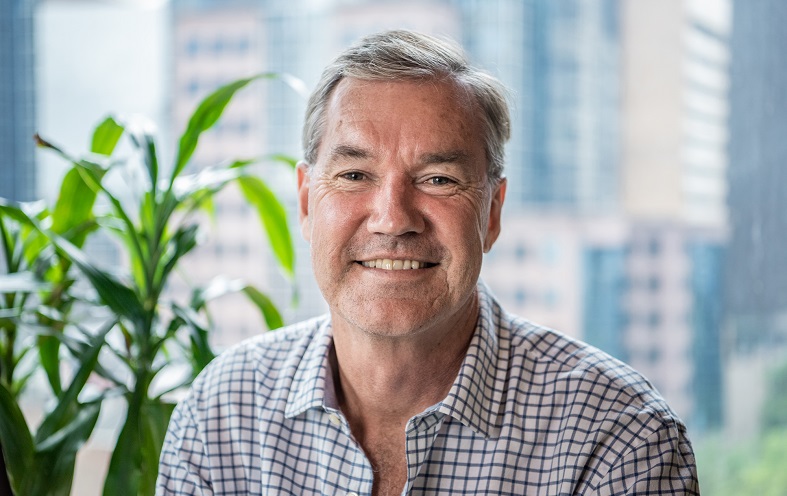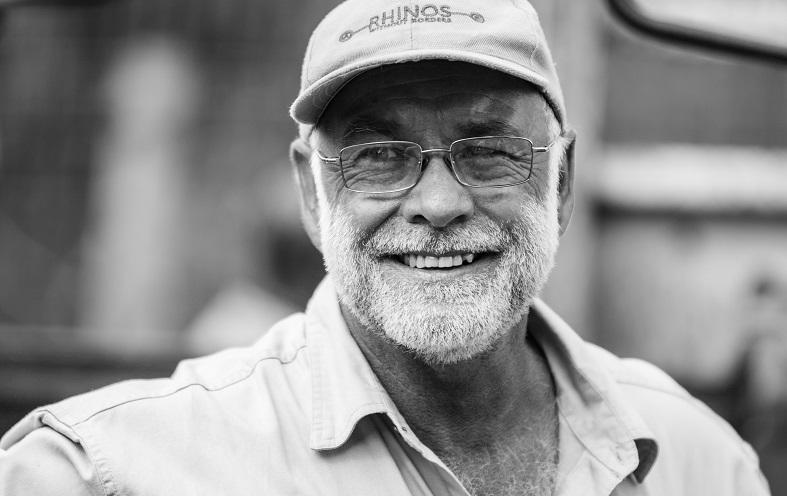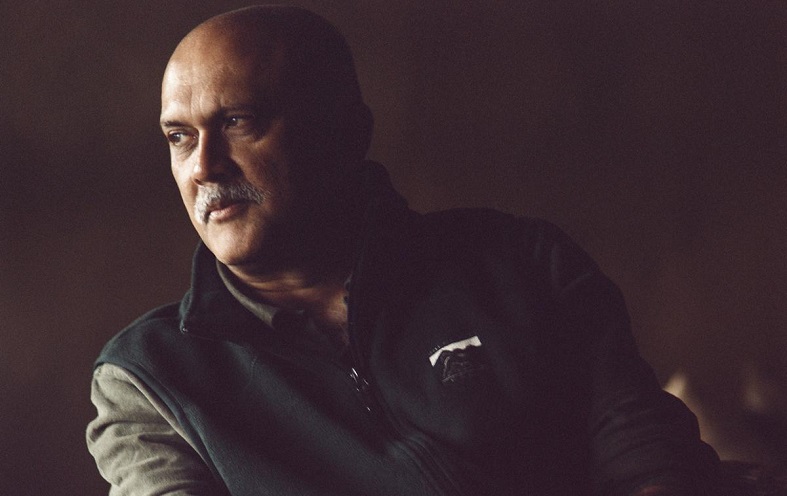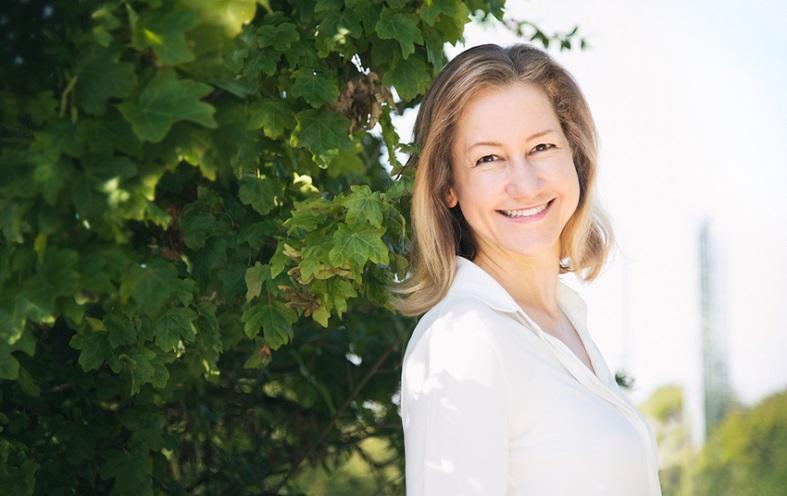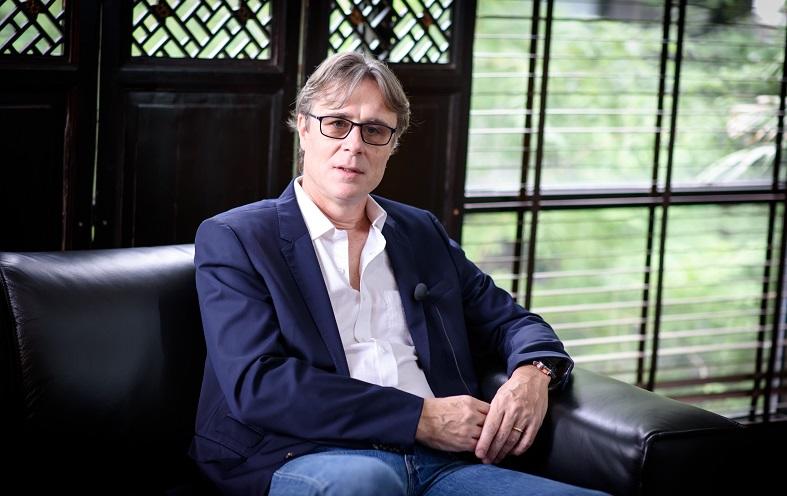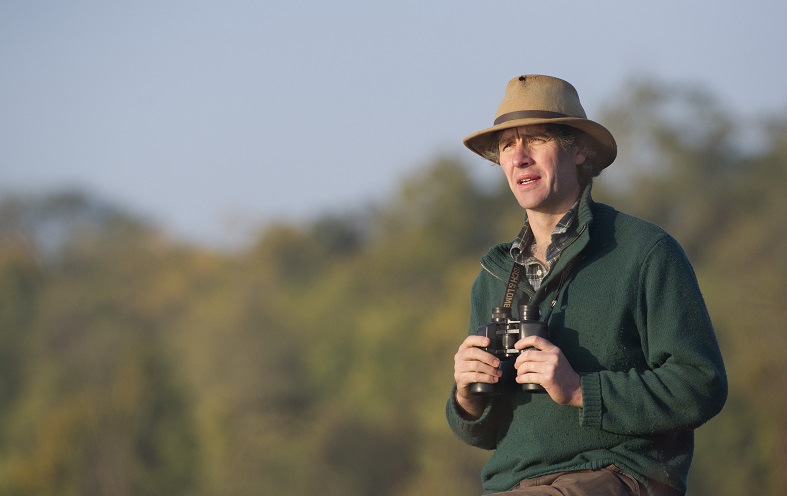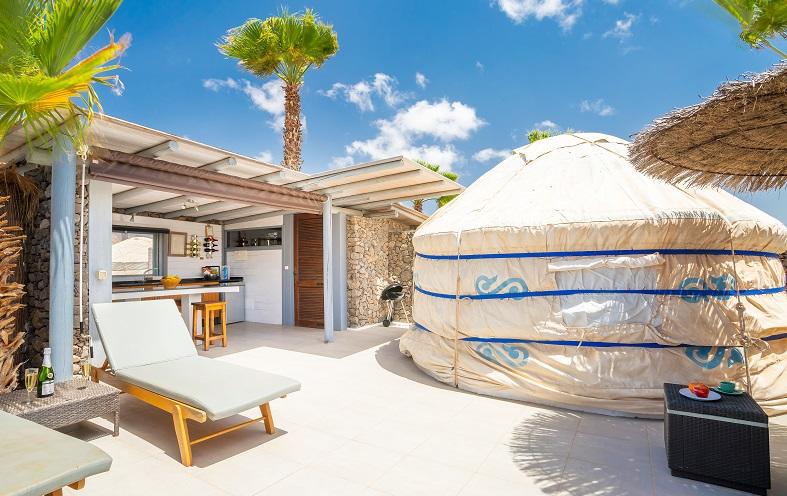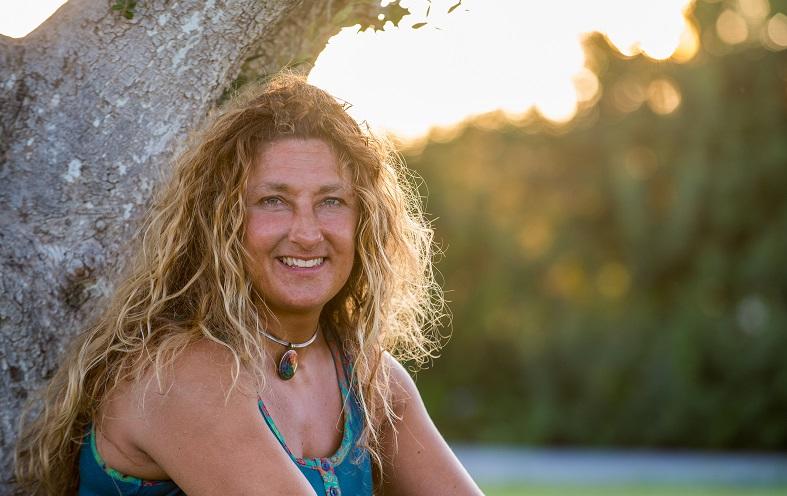
How can a tourism business rise to the challenge when the revenue stream freezes due to the coronavirus lockdown?
Frankie Hobro, Owner and Director of Anglesey Sea Zoo and Marine Resource Centre is a good example that not all is lost during difficult times, such as the current pandemic. A true sustainability champion, she rose to this challenge and showcased how innovative and feasible changes in her business kept the aquarium operational while safeguarding all the marine wildlife that thrive in her zoo.
Frankie’s love for marine wildlife and her commitment towards conservation is evident from the efforts taken to raise funds to keep the zoo functional, at the same time engaging in beach cleanups throughout the lockdown.
Frankie, we received an overwhelming number of responses on LinkedIn, nominating you as a sustainability champion for the amazing work you have been doing at the Anglesey Sea Zoo. What motivates you to push boundaries – and how do you stay motivated and committed during the current uncertain, difficult times?
Pushing boundaries is the scientist in me, although I usually call myself a natural historian and conservationist. I have a curious mind. I like to know everything, and everything about what works and what does not work, and why. This curiosity leads me to constantly push boundaries and explore options until one day it works and the results pay off.
My hands-on practical scientific background taught me to observe and record everything very closely and this leads to a strong gut feeling for what works and what does not, and what is worth trying. Then this is applied, not as a risk as such but a well-calculated decision that is likely to pay off. And if it doesn’t, at least you know what doesn’t work and why; which is productive going forward.
I see failure as a positive thing as it shows you what doesn’t work and allows you to test an alternative route towards the solution – as long as you learn and progress from your mistakes. Anyone who has not made a mistake has never tried anything new. Pushing boundaries is the desire to know, a curiosity to find out and the confidence to be the person who takes the plunge. Somebody has to be the first to attempt everything new and I like to be that person. The worst thing that can happen is that it does not work. If nobody ever pushes the boundaries there will never be any progress with anything.
I am very passionate about what I do and I constantly aim to do my very best and make a real difference, which is my motivation. I have never been motivated by money or materialism – if I was doing what I am doing for the money I would have given up before I even started! I want to influence others in a positive environmental way, through leading by example and laying a legacy of sustainability and positive change.
When you have love and passion for what you do every day, there is no question of losing motivation or dropping commitments. When you are investing in environmental projects and long-term conservation programmes you are signed up for the long haul and you have to accept the hiccups along the way. Your commitment has to be 24/7 especially when you are the owner or driving force as I am here, you can’t just quit or walk away, and this is something I accepted from the day I started. There is no question of losing years of sweat, tears, and investment by stopping a research programme in its tracks or putting conservation work on hold. The animals carry on doing their thing, as does nature, endangered species remain endangered and the protection they need does not become any less just because your time or resources are reduced. It has to continue at any cost and from the day you take that commitment on, your job is to find a way to ensure that this work continues, come what may.
I believe that difficult times, like mistakes, are an essential part of the learning experience and personal growth. Being resilient and resourceful is essential for sustainability and often through the need to adapt to get through the toughest times of absolute desperation, come the most ingenious and creative long-term solutions.
What (or who!) inspired you to dedicate your professional career to protecting the marine environment?
I have always been environmentally minded and a nature lover – my parents were science teachers in the early days of promoting sustainability, recycling, and renewable energy so I grew up seeing that as the norm.
Although I grew up in the Midlands in England far from the sea, we spent all our holidays in North Wales, based on Anglesey island which was a perfect playground for my passion for nature. Once I left city life as a teenager I never returned – ever since then, it’s been an island life for me!
I had a year out before going to university and decided to travel the world on my own – the best decision I ever made! In Australia, my passion for conservation was properly sparked for the first time while spending time walking in the bush with an old family friend who was a biologist. When I came back to study I knew that wildlife conservation was what I wanted to do. My final year dissertation for my Bachelor’s degree was on conservation and invasive species control in Australia. When I left university I started to apply for projects abroad – it was competitive work, poorly paid, and I had to work hard to save up enough to cover my own living costs. I managed to secure a place on a very competitive project funded by the Gerald Durrell Wildlife Trust (Jersey Zoo) with the Mauritian Wildlife Foundation.
It was hands-on immersion from day 1 and I loved it, living in basic conditions in field stations and completely deserted areas with no running water or electricity but surrounded by nature. We were taught the skills we needed in the field and quickly moved on to monitoring and ringing critically endangered bird species. I was in my element, learning abseiling and climbing and other skills to carry out the work and I ended up staying on for several seasons, training other volunteers and managing projects for just over 4 years in total, so I became a specialist in conservation and management of island ecosystems.
I also spent several months volunteering on other endangered species projects on Indian Ocean islands including the Seychelles and Madagascar as the skills I had picked up were easily transferable, and 6 weeks in New Zealand during which I volunteered on monitoring and conservation projects on offshore islands.
While I was the island manager on Ile Aux Aigrettes Nature Reserve in Mauritius I gained my Divemaster qualification. I adapted my skills for SCUBA-plumbing to maintain the constantly damaged freshwater supply pipe which ran 1km across the sea bed to the island, and I volunteered with the Mauritius Marine Conservation Society doing marine monitoring and underwater clean-ups. I started monitoring the marine reserve around the island with the information provided through a professor at Bangor University Ocean Sciences in North Wales.
When I was ready to move on, I contacted the same Professor to ask about any marine research projects I could apply for to increase my experience in this area. His response was to offer me a fully-funded place on his MSc course in Marine Environmental Protection at Bangor University off the back of my conservation experience.
So that is how I expanded into marine conservation and ended up setting roots back in North Wales!
For my Master’s thesis project, I was a research assistant studying the foraging behaviour of manta rays in Baja California, in the Sea of Cortez in Mexico which took me to Mexico and the USA for 6 months. During this time I was fortunate enough to be an assistant on several other marine projects including marine mammal monitoring in Monterey Bay. Then I spent a year working in the Maldives as a marine eco guide and teaching and running local conservation projects before returning to Seychelles for 3 years where I was an Island Manager on 2 different islands covering both marine and terrestrial conservation work, including the monitoring and tagging of seabirds and turtles, giant tortoises and several critically endangered species of land birds.
These incredible experiences on global hands-on conservation projects involved training and educating local communities and individuals to ensure they understood the need to protect nature and how to do this effectively. It gave me a firm grounding in collaboration and what can be gained through sheer determination, resilience, and hard work. If you were good at your job, you were out of a job and leaving the project in the safe hands of the local community. This solved an environmental problem by giving an alternative solution to local people with a positive result for them and the environment, the common good.
In March 2007, I returned to North Wales and bought the Anglesey Sea Zoo, which was an ‘old and tired’ visitor attraction much in need of investment and a new direction. I saw the potential to fill an essential niche whilst indulging my own passions and living in a place I love.
From the day I bought the business, I started on my vision of converting it to the unique product that it is today – an all British aquarium focussing on sustainability and environmental protection, carrying out vital endangered species conservation programmes for native species to be re-released into the wild, whilst working closely with local communities and fisheries to educate and involve the public, enhancing their knowledge and love for marine life and thus encouraging them to help protect it.
This is a long term vision, a legacy that needs building. Something like this doesn’t happen overnight, it takes years of commitment, dedication, and building bridges within the community and further afield. To be successful, it needs the support and participation of the local community and the public, it needs the involvement of others, for people to buy into it and believe in it and share my passion.
I saw huge potential in the unique location here and the ability to create the first-ever all British aquarium, with water pumped straight from the sea. I realised I had finished chasing my dream, now it was time to start building it.
How is the Anglesey Sea Zoo reducing its environmental impact and inspiring visitors to appreciate nature and protect wildlife?
The very nature of the Anglesey Sea Zoo is sustainable and ethical, it runs as a natural open system, with seawater pumped directly from the sea on the doorstep, through the exhibits, and then back to the sea. This means that all our animals experience natural changes in sea temperature and seasonality such as plankton blooms just as they would in the wild. Happy animals mean healthy animals that display natural behaviour – breeding and feeding well on their own.
There is nowhere in the UK that holds only British marine species and despite a great education system here, the UK is full of people who know nothing about the seas surrounding our island nations, what is in them, or how to protect them. Having lived and worked in developing countries, I have seen the inhabitants of islands with incredible knowledge about the sea, the species there, and the marine environment, but here in the UK nobody was aware of any of these things.
Enabling understanding through education encourages people to care and protect and the Anglesey Sea Zoo does just that – allowing people to see, learn and understand all the amazing species we have in our British seas and the importance of protecting them.
When we first started the British Seahorse Breeding and conservation programme here, I was amazed at how few people were even aware that there are native seahorses in the UK, let alone the fact that they are now critically endangered and on the verge of extinction in the wild. We are the only place in the UK to house and breed both species of native seahorse and we are working with Project Seagrass, Seasearch, and other organisations to re-release these amazing creatures back into the wild where they were once relatively common.
Here we have basking sharks, leatherback turtles, and other amazing ocean giants in our waters but most people never see them so they are oblivious to their existence. Once they know about them and the threats they face, they want to help to protect them. It is a similar story for many of the more common creatures here which people have seen or heard of – and often eaten – but know nothing about.
I have noticed that once somebody has volunteered on a beach clean-up, where they have to see and deal with the results of others not disposing of their rubbish properly and the damage caused by debris in the environment, their own attitude towards rubbish disposal changes completely and wherever they go, they start to pick up and rethink their own habits. It all comes down to instilling a sense of ownership through involvement and encouragement.
I believe in leading by example through encouraging, enthusing, or even shaming others into doing the same. I have invested in 50KW of solar panels here – possibly making us the first solar-powered aquarium? We practise regular stock rotation and regular re-release programmes for common lobsters which we breed in our hatchery facility here. We are an Environmental Hub for beach clean-ups with our own voluntary local community group and I am a local coordinator for emergency call-outs for all kinds of marine animal rescue. And we have ongoing research programmes dedicated to the captive breeding and eventual reintroduction of both species of British seahorse and spiny lobsters into our seas, both of which are now almost extinct in the wild having once been commonplace.
I believe in leading by example and sacrificing short-term profits to promote positive environmental change, in people’s habits, attitudes, and lifestyles as well as actively protecting our marine environment and the creatures within it.
Anglesey Sea Zoo won Green Key’s ‘Ethical Green Business of the Year’ award last year. How has this recognition impacted you and the work you do at the zoo?
I heard about the Green Key Award 5 years ago through the community work I was doing with Keep Wales Tidy. This appealed as a progressive award with new targets which must be met every year to show a further reduction in carbon footprint and increase in sustainable practise, not just a one-off award which can be won through box-ticking then shelved.
The international recognition of the Green Key Award appealed too, as sustainability is very much a global concept, not just a local one. The Anglesey Sea Zoo was the first business on Anglesey and only the second hospitality business in the whole of North Wales to gain the green key accreditation in 2016 and we have continued to gain it every year since, for 5 consecutive years now, through constantly meeting new sustainability targets. We have also won several Green Business of the Year awards, twice for the Daily Post Business Awards and also through Go North Wales.
These accolades are the most incredible recognition for myself and the team here as the core aim of the work we do is to be green, sustainable, environmentally sound, to pushing boundaries in conservation, education, and research.
It helps us to stand out and be recognised as a centre for positive environmental change and to get others on board with the concept of making a positive difference, and it makes our tireless efforts seem worthwhile and appreciated. We know we are meeting and achieving our goals.
My most prestigious award was in July 2019, when I had the immense honour of being awarded Alumnus of the Year for Bangor University off the back of my ongoing contribution to research and conservation projects, promoting positive environmental change, working with the community, and as an employer to university graduates and volunteers.
Zoos around the world are getting creative to keep funds flowing in, coping with the loss of income during the pandemic. What measures have you taken at Anglesey Sea Zoo and Marine Resource Centre, to ensure financial sustainability?
The pandemic caused extreme stress with the challenge of juggling optimum animal welfare, essential systems maintenance, and ongoing vital conservation and community programmes whilst meeting running costs of £20,000 a month with no income.
This was compounded by a lack of sufficient Government clarity or support whilst we were closed and towards reopening, both in terms of guidance and funding.
Upon lockdown, we dropped to skeleton staffing with 80% of staff furloughed. The remaining staff and volunteers adapted their roles to cover the essential work – there were just 4 of us remaining across the whole site including myself, along with a handful of volunteers, keeping everything running for almost 4 months. It was full-on and extremely stressful and exhausting but fortunately, we came through it!
With animal welfare always a priority, we had to explore new and creative ways to keep the community engaged with our animals and conservation efforts and to raise funds whilst closed.
We posted regular videos over social media with updates on our animals and also did live feeds showing novel behind-the-scenes aspects of the aquarium.
We engaged the public in an emergency funding campaign to help raise funds and the response was fantastic! Without these donations, we may not have managed to keep afloat so I am extremely grateful to the public for this support at such a difficult time for many people. And it was very reassuring, having spent so much time investing in the local community and environment, to get that support back at a time of such need.
I continued the beach clean-ups and animal rescue work myself with my kids throughout lockdown. Sadly, there was more litter being dropped than ever but we also had many local people wanting to borrow the kit from our Environmental Hub to do their own clean-ups as they hated seeing rubbish everywhere during their daily exercise, so this role became more important than ever and I believe it positively changed many people’s attitude and made them more proactive. I also spent many hours with my kids on the beach collecting food for our animals such as crabs and prawns to ensure that we could keep them healthy and well-fed.
We started a phased reopening in July, strictly following government and industry-specific guidelines to ensure the safety of our visitors, staff, and community and gained the ‘Good to go’ accreditation through Visit Britain. The extra costs of reopening under COVID guidelines were high and there was no funding for this. We fitted screens at every till, bought extra PPE for staff, set up a fully signposted one-way system across the site with fun, bespoke floor graphics, and fitted numerous hand sanitizer stations across the whole site made from EcoPly, which look great and are environmentally friendly too!
Faced with a reduced capacity of 50% in the main aquarium building to maintain adequate social distancing, I had to come up with ways to increase visitor footfall in the outdoor areas and to accommodate a large number of queuing visitors on busy days.
We put on extra free outdoor activities for visitors, with staff positioned to give hands-on sessions and talks and invested in more covered and sheltered outdoor areas, so bringing all our outreach and visitor interaction sessions outside. Guided family seashore safaris and other free activities offer great value for visitors and they stay on-site longer and learn and participate more while they are here.
We have a great new circus-style events tent to allow activities in a sheltered outdoor environment at a safe social distance and this will be available throughout the year to guarantee that we can offer events and group bookings with ample space in a COVID safe environment. It has also introduced a great new feeling of family fun to the site.
What is the future of marine conservation when there is no relief in sight from rising sea temperature, ocean acidification, plastic pollution, and more recently, deep-sea mining?
It is very easy to be defeatist about the global climate emergency and to feel powerless against the looming crisis with so few positive solutions currently. But a negative attitude will get us nowhere so we must come up with a formula to ensure the survival of humanity and this planet which sustains us.
I am a great believer in the power of positivity – always wear positive pants not negative knickers! There is always a solution but you have to persevere to find it and work with others who want to achieve the same goal.
I believe there are amazing technologies and discoveries on the horizon which can help us combat and even reverse impending environmental disaster. But to succeed we need to overcome the current lack of recognition of the issues so that we open doors for funding and maximise efforts towards harnessing it. We need absolute recognition and action from the right people in positions of power to bring about immediate change and for that, they all need to look beyond instant gratification and personal gain and learn to work collaboratively for the greater good. Sadly, this seems like an unrealistic request – but we all share one planet and we are the guardians of our earth so we need to unite in one goal and the responsibility of caring for it.
I see many people working hard, caring a lot, and in their own way making a huge difference but until we can have the same response from the large multinational organisations and collaboration from the global government we will not see sufficient change. I can see why it is so easy for people who are doing so much to feel defeatist about the bigger picture. But it is important for everyone to play their part in a positive way, however small it may be, as the overall whole result will be a very significant positive change.
Extremely challenging situations often lead to the most successful and extreme solutions. I truly believe that a complete turnaround is not only possible but imminent. Humans can be incredibly resourceful and innovative and when that energy is correctly channelled and combined it can lead to incredible things. We can turn the tide on the impending environmental disaster if we work together.
The state of our oceans is deteriorating at an alarming level. What must the global community do immediately to slow down, if not reverse the damage that is being done?
Many minds are better than one, so collaboration is essential.
There are many of us doing our utmost already to make a difference but as we are doing it alone and it is not enough. If we find a way to join as one large global force, together we can change the world and turn the tide, one wave at a time.
Everybody is connected to the environment in some way and lockdown here restored that link to nature and the outdoors for many people who had lost it. This is a perfect opportunity to rekindle the underlying connection that everyone has for nature and our planet. This pandemic made many people realise how fragile our existence is and how essential it is that we preserve our environment if only to ensure our own health and wellbeing.
We are rapidly nosediving into a global catastrophe. Human impacts are destroying nature and our planet faster than ever daily, this is not only harming wildlife populations and our environment but also our own health and lifestyles.
We need a united global leadership that not only recognises but tackles this issue by pulling together those of us who are desperate to help, and stopping in their tracks those who continue negative exploitation be it through financial or legal means or both. This can be done but it requires strong leadership focussed on sustainability and the common good for a united global conservation movement. Currently, we do have nations with the capacity to do this but sadly we also have many who do not have this kind of leadership and that needs to change.
Nobody can do this alone, no single leader or nation or superpower. It has to be a focussed, collaborative effort putting competition and financial gain aside and working together for the greater good. If the global pandemic has taught us only one thing, then surely it is that we have to be united as a global community, as nature has no boundaries. Our damaging activities and habits will inevitably bounce back to affect us all negatively, so we all have to collectively work towards a remedy.
Anything else you’d like to mention?
Everyone can do their part and every part is incredibly important.
People often say to me that it feels pointless trying so hard to be environmentally friendly when whole governments and nations are not, so their own contribution makes no difference. But it does. It is important to encourage everyone to continue to make a positive difference, however small – after all, great oak trees from little acorns grow.
Thank you, Frankie.
Connect with Frankie Hobro on LinkedIn and follow the incredible job she and her team are doing at Anglesey Sea Zoo on Facebook, Twitter, and YouTube.
Enjoyed our interview with Frankie Hobro on how she shouldered the responsibility of keeping her zoo operational on a shoestring budget, to protect the British marine wildlife? Thanks for sharing!

